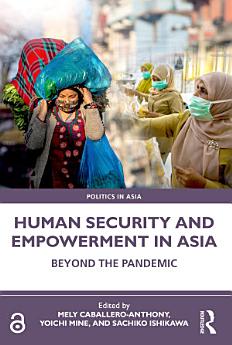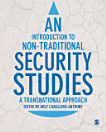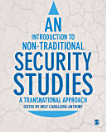Human Security and Empowerment in Asia: Beyond the Pandemic
About this ebook
While the conventional human security literature has focused on top-down protection, this book offers new perspectives on human security by exploring bottom-up empowerment from both theoretical and practical perspectives. It also encourages readers to rethink the agency of vulnerable people in addressing the challenges posed by the pandemic. Through eight case studies from Southeast Asia and Japan, the contributors to this book demonstrate the importance of empowerment in achieving human security. They focus on the responses of vulnerable groups and communities to multiple threats to their lives, livelihoods, and dignity. The chapters discuss key human security concerns, such as poverty, the environment, food, forced migration, gender, health, aging, peace, and justice – all of which have been compounded and exacerbated by the COVID-19 pandemic.
An essential resource for students and scholars of human security in the aftermath of COVID-19 and its wider impacts.
The Open Access version of this book, available at www.taylorfrancis.com, has been made available under a Creative Commons Attribution-Non Commercial-No Derivatives (CC-BY-NC-ND) 4.0 license. Funded by JICA Ogata Sadako Research Institute for Peace and Development.
About the author
Mely Caballero-Anthony is Professor of International Relations and Head of the Centre for Non-Traditional Security (NTS) Studies at the S. Rajaratnam School of International Studies (RSIS), Nanyang Technological University, Singapore.
Yoichi Mine is Executive Director of the Japan International Cooperation Agency (JICA) Ogata Sadako Research Institute for Peace and Development and Professor at the Graduate School of Global Studies, Doshisha University, Japan.
Sachiko Ishikawa is Professor at the Faculty of International Relations, Ritsumeikan University, Japan, and Visiting Fellow at Japan International Cooperation Agency (JICA) Ogata Sadako Research Institute for Peace and Development.






